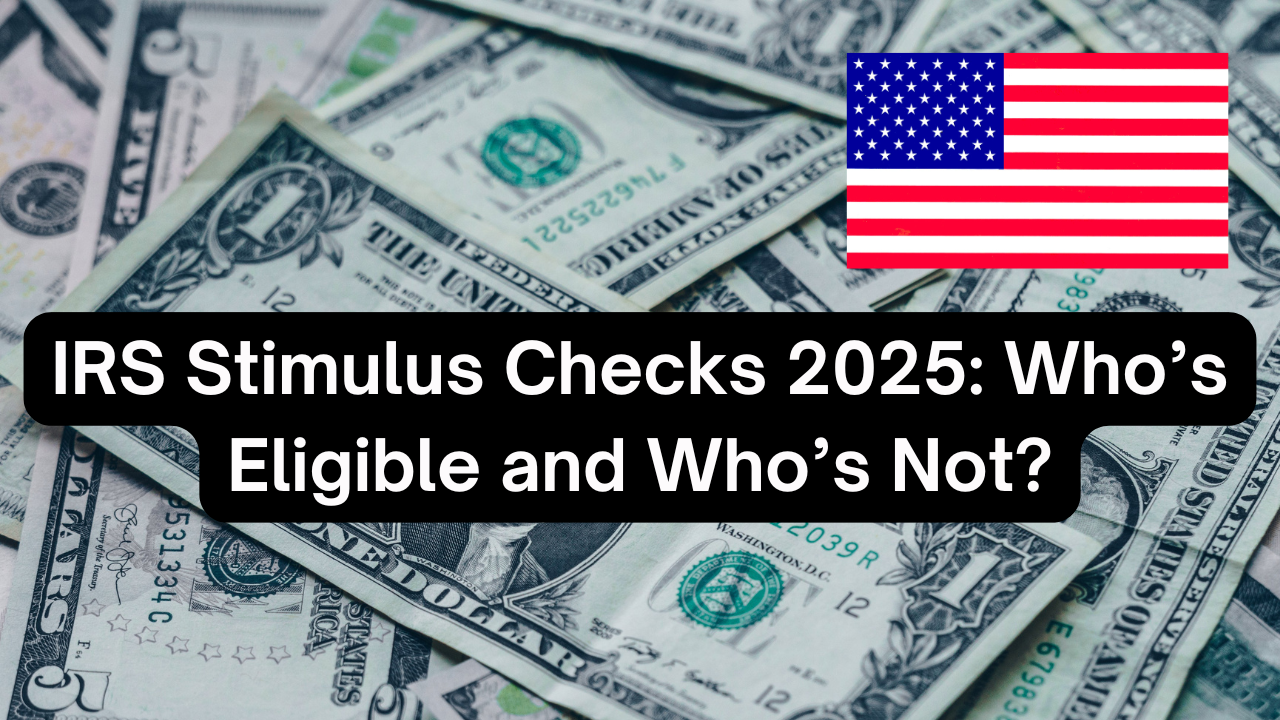As we move into 2025, many Americans are asking whether they’ll qualify for the next round of IRS stimulus checks. With the ongoing economic recovery efforts, these payments can provide much-needed relief. But who exactly is eligible, and who might miss out? Here’s a breakdown of everything you need to know about eligibility for IRS stimulus checks in 2025.
What Are IRS Stimulus Checks?
Also called Economic Impact Payments (EIPs), IRS stimulus checks are direct payments sent by the government to help Americans cover basic expenses like bills, groceries, and rent. The idea behind these payments is to offer financial support to individuals and families during tough economic times. While these payments were introduced in response to the pandemic, they’re expected to continue in 2025 as part of ongoing relief efforts.
Who is Eligible for IRS Stimulus Checks in 2025?
Eligibility for the 2025 IRS stimulus checks depends on a few key factors: your income, filing status, and whether you have dependents. Here’s a closer look at what to expect:
- Income Limits
The IRS uses your adjusted gross income (AGI) from your most recent tax return to determine if you qualify. While the exact income limits for 2025 may vary, here’s a general guide based on past rounds of payments:- Single Filers: If you earn $75,000 or less, you’re eligible for the full amount.
- Married Couples Filing Jointly: For couples with an AGI under $150,000, both will likely qualify for the full payment.
- Head of Household: If you file as Head of Household and earn $112,500 or less, you’ll qualify for the full check.
- If your income exceeds these limits, you may still receive a smaller payment. Once your income hits certain higher thresholds (typically around $100,000 for singles and $200,000 for joint filers), you may no longer be eligible at all.
- Filing Status
Your filing status—whether you file as single, married, or head of household—directly impacts how much you could receive. Here’s how it breaks down:- Single Filers: As long as your income stays below the threshold, you’ll qualify for a stimulus check.
- Married Couples: Both spouses need to meet the income requirement. If only one spouse qualifies, the payment may be reduced.
- Head of Household: You could qualify for a larger payment if you support dependents and meet the income criteria.
- Dependents
The more dependents you have, the larger the payment you can receive. If you have children under 18 or other dependents living with you, you might qualify for additional funds. Each qualifying dependent could add hundreds of dollars to your total payment.- Children under 18: Each child can increase your stimulus check amount.
- Adult Dependents: If you support adult dependents—like college students or elderly relatives—you may also qualify for extra payments.
- Social Security and Other Government Assistance Recipients
Social Security recipients, retirees, and those receiving government assistance are generally eligible for the IRS stimulus checks as long as their income is within the eligibility range. If you’re receiving benefits but don’t usually file taxes, you may still receive a payment based on your benefit status.
Who is Not Eligible for IRS Stimulus Checks in 2025?
While most people will qualify for some form of payment, certain groups will not be eligible. Here are the main reasons why someone may not qualify:
- Non-Residents and Undocumented Immigrants
To receive an IRS stimulus check, you must be a U.S. citizen or a legal resident. Non-resident aliens and undocumented immigrants are not eligible. - High-Income Earners
If your income exceeds the established limits, you may not qualify for a stimulus check. For example, single filers earning more than $100,000, or married couples making over $200,000, could miss out entirely. The payment typically decreases as your income rises and phases out completely once you cross certain thresholds. - Dependents Claimed by Someone Else
If you’re claimed as a dependent on someone else’s tax return, you won’t receive your own stimulus check. This includes children, students, or any other individuals who are financially supported by someone else. The person who claims you will receive any additional payments for you.
How Do You Apply for IRS Stimulus Checks?
Good news: You don’t need to apply for a stimulus check if you’re eligible. The IRS will automatically issue payments to those who qualify based on their 2023 tax return. If you’ve already filed your taxes, the IRS will use that information to determine your eligibility.
If you didn’t file a tax return because your income was too low, you might need to use the IRS Non-Filer Tool to submit your information. This ensures the IRS can send you your payment.
Final Thoughts
IRS stimulus checks have provided significant financial support to millions of Americans. Understanding whether you qualify for the 2025 payments is crucial in making sure you receive the relief you need. Keep in mind that eligibility depends on factors such as income, filing status, and dependents.
Stay informed about IRS updates and check the eligibility guidelines regularly to ensure you don’t miss out on your payment. Whether you file as a single, married, or head of household, it's important to know the details to help you take full advantage of this assistance.
